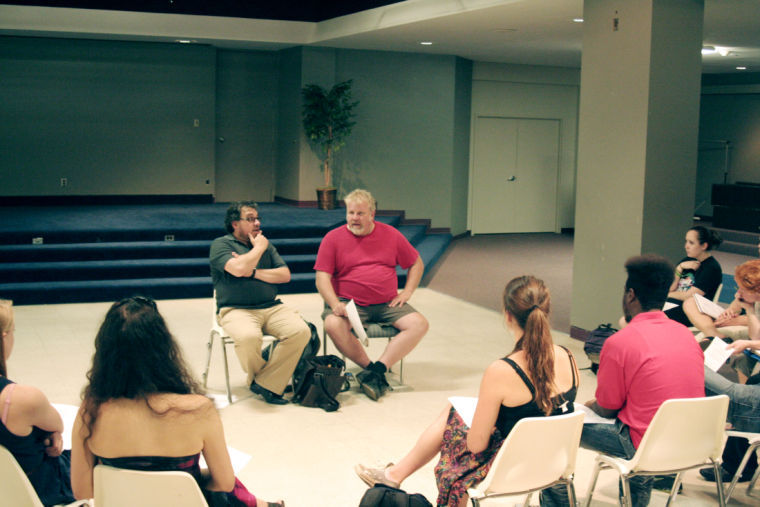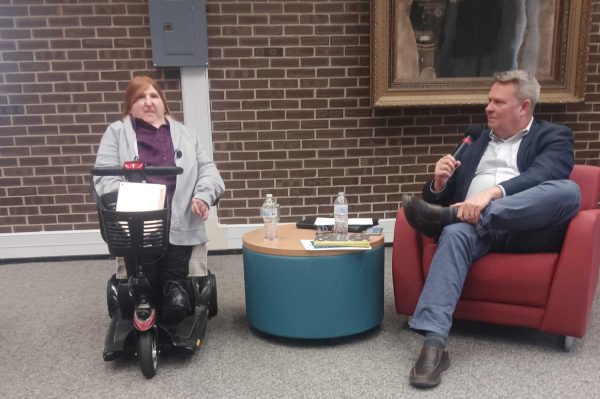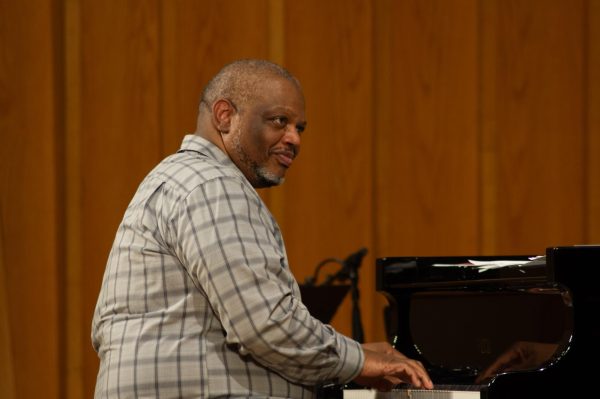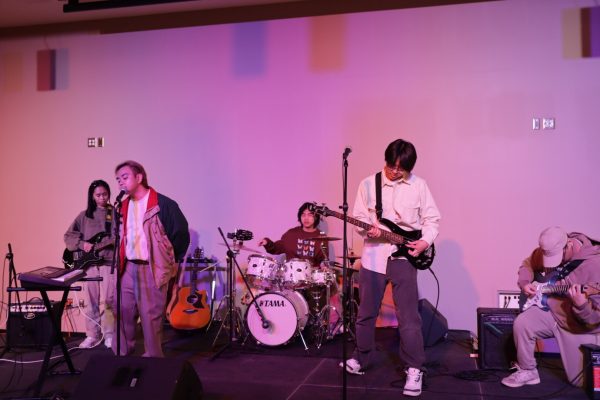Stevens undergoes $22.8 million construction
Acting head of B.F.A. Performance Stanton Davis (right in red) and co-teacher, director at the School of Theatre and Dance Alexander Gelman, discuss what’s in store for the semester to the students of their Verse Drama for Shakespeare class.
August 28, 2013
The Stevens Building is taking it from the top.
After 54 years of theatrical performances, tradition and memories, the Stevens Building will see construction that is scheduled to begin in January 2014. The building has been home to the School of Theatre and Dance and the School of Anthropology since 1959, but it has developed mold and water stains over the years.
Since 2007, NIU has attempted to receive federal funds for renovations to the building, which was in an “appalling condition,” according to news releases from NIU.
Construction for the project will cost an estimated $22.8 million, and the estimated total project cost will be $27.4 million, according to state documents. According to an NIU news release, Gov. Pat Quinn released about $10.3 million for construction in Cole Hall and the Stevens Building in 2010.
The faculty and students were asked to move out of the Stevens Building in the spring to accommodate planning for the renovation. Since then, the faculty have called home the vacant residence hall Grant South.
Stanton Davis, acting head of the B.F.A. Performance program, is more than willing to deal with new circumstances to make sure the renovation can be completed. Classes for the students have been moved to several open classrooms around campus, and performances for the School of Theatre and Dance will be held at Huntley Middle School, 1515 S. Fourth St.
The renovation of the Stevens Building will allow students to learn, rehearse and perform in new, equipped spaces, Davis said.
“There will be more classrooms, and even a new Black Box Theater,” said Davis. “They are adding a second floor, and the shop will be completely renovated.”
Since the students and faculty will be using borrowed spaces until the renovation is complete, the School of Theatre and Dance faculty, including Davis, would like to keep a sense of community while the students are away from their home turf.
“We want the students to still feel in touch with us, and with each other,” said Davis.
Davis knows the importance of sticking together as performers in difficult times, like the ones the students are experiencing now. He said times like these can also bring students closer together as they work through the experience.
“While I worked as a touring professional actor, we worked in a different space almost every day. If the students can imagine this time as a tour, I think this can work,” Davis said. “They can all work together.”
The students have their own opinions on the renovations. Sara Copeland, junior fine arts acting major, said the renovations, although necessary and exciting, have caused a strain on the students’ learning experience.
“It’s inconvenient, that’s for sure,” Copeland said in a phone interview. “It’s hard to find space to practice in, and that’s essential to the work that we do.”
Copeland said even though the students are experiencing some confusion because of the renovations, the renovation is a positive thing for the School of Theatre and Dance.
“I know it will benefit students for years to come,” Copeland said.













